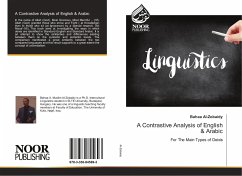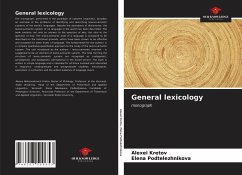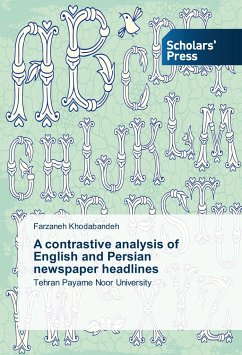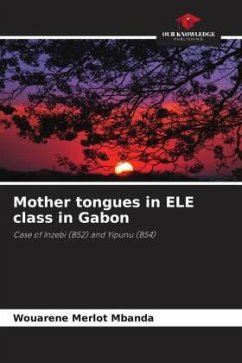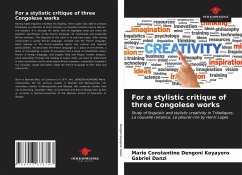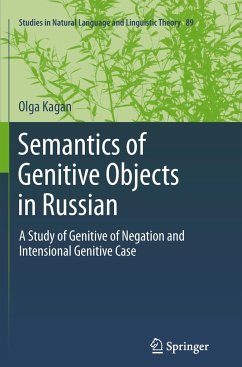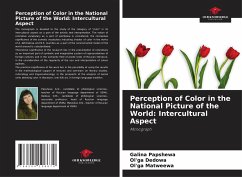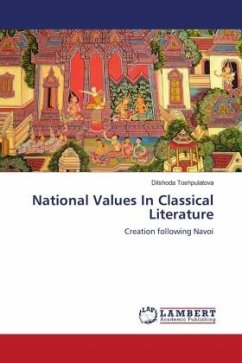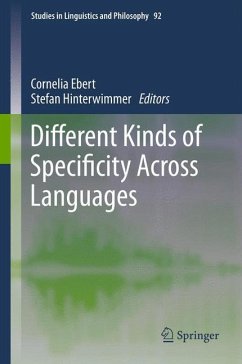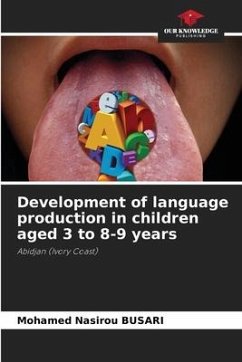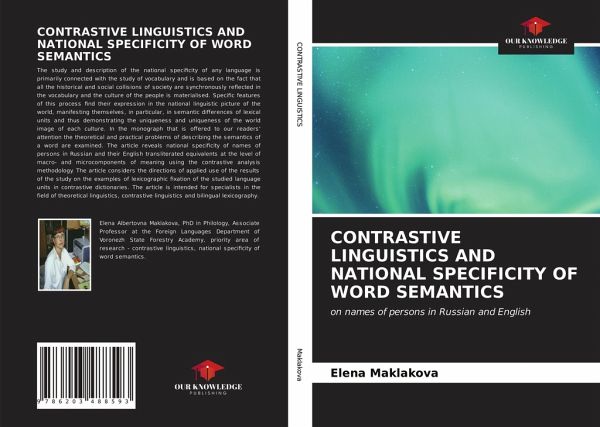
CONTRASTIVE LINGUISTICS AND NATIONAL SPECIFICITY OF WORD SEMANTICS
on names of persons in Russian and English
Versandkostenfrei!
Versandfertig in 6-10 Tagen
52,99 €
inkl. MwSt.

PAYBACK Punkte
26 °P sammeln!
The study and description of the national specificity of any language is primarily connected with the study of vocabulary and is based on the fact that all the historical and social collisions of society are synchronously reflected in the vocabulary and the culture of the people is materialised. Specific features of this process find their expression in the national linguistic picture of the world, manifesting themselves, in particular, in semantic differences of lexical units and thus demonstrating the uniqueness and uniqueness of the world image of each culture. In the monograph that is offe...
The study and description of the national specificity of any language is primarily connected with the study of vocabulary and is based on the fact that all the historical and social collisions of society are synchronously reflected in the vocabulary and the culture of the people is materialised. Specific features of this process find their expression in the national linguistic picture of the world, manifesting themselves, in particular, in semantic differences of lexical units and thus demonstrating the uniqueness and uniqueness of the world image of each culture. In the monograph that is offered to our readers' attention the theoretical and practical problems of describing the semantics of a word are examined. The article reveals national specificity of names of persons in Russian and their English transliterated equivalents at the level of macro- and microcomponents of meaning using the contrastive analysis methodology. The article considers the directions of applied use of theresults of the study on the examples of lexicographic fixation of the studied language units in contrastive dictionaries. The article is intended for specialists in the field of theoretical linguistics, contrastive linguistics and bilingual lexicography.



